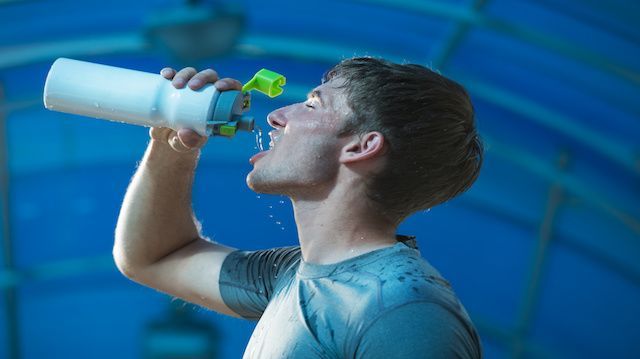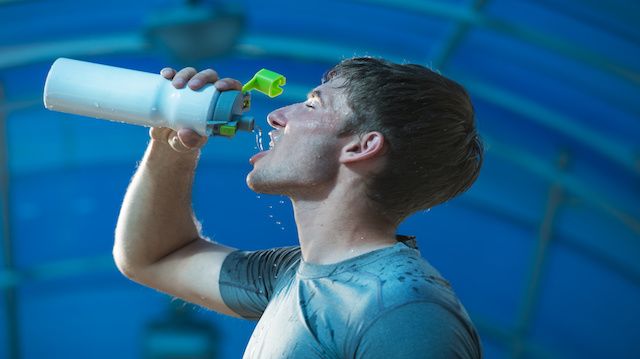
You’ve seen the ads for underarm deodorant, so you know that in our culture sweating is just about the most embarrassing natural process out there. And yet, anyone who has exercised in July realizes that the human body is meant to produce sweat, and a lot of it.
Sweating does more than just keep you cool, it provides multiple health benefits. In fact, if you sweat more than average, new research suggests you might be healthier than your peers.
What sweating does for the body
According to the University of Virginia SPEED (Speed, Power, Endurance, Education and Development) Clinic, exercise is an efficient way to cool the body. Sweat is produced when the body converts glucose into energy and is used to keep the body from overheating while the energy is being utilized. It’s similar to the way liquids are used to keep drills from catching on fire in manufacturing plants. Sweat is designed to keep the body between 98 and 103 degrees Fahrenheit. If the body gets hotter than 103 degrees, it starts to suffer.
Generally, athletes sweat sooner and more than their nonathletic counterparts. A person who is active is able to convert glucose to energy faster, which conditions the sweat response to react sooner and more actively. This enables an athlete to do more without suffering. If a person sweats a lot during exercise, this indicates that their body is more efficient at converting fuel to energy.
Better energy use is not the only benefit of sweat. Here are just three of the many other benefits of sweating:
Sweating can detoxify the body
 According to a 2011 study published in the Archives of Environmental and Contamination Toxicology, sweat is not only made up of minerals and water. It also contains chemicals, alcohol, salt and cholesterol. The researchers theorized that sweating acts as a mini detox for the body and can boost the entire body’s health just by eliminating toxins through the skin.
According to a 2011 study published in the Archives of Environmental and Contamination Toxicology, sweat is not only made up of minerals and water. It also contains chemicals, alcohol, salt and cholesterol. The researchers theorized that sweating acts as a mini detox for the body and can boost the entire body’s health just by eliminating toxins through the skin.
Sweating boosts the immune system
Surprisingly enough, some evidence suggests that the act of sweating has protective effects on the immune system. According to research, sweat forms a protective barrier on the skin which has antiviral, antibacterial and antimicrobial effects. A study published in the Proceedings of the National Academy of Sciences in 2013 found that the mixture of sweat combined with other skin membranes (called dermcidin) was able to fight bacteria, fungi and viruses. According to the study, the effects are triggered when the body sweats.
Sweating can reduce pain
If you are feeling the minor aches and pains of life, go for a run. Studies suggest that sweating and exercising can help alleviate minor aches and pains as well as reduce the pain from minor injuries (meaning that science does back the phrase “walk it off” for some injuries). According to research from a 2010 study published in Hawai’i Medical Journal, endorphins act similarly to morphine as they block the body’s ability to feel pain. When we exercise and sweat regularly, we naturally trigger an endorphin response.
So, the next time you are feeling embarrassed about sweating during your fitness routine, remember that sweat is the mark of a true athlete and indicates a healthy body as well as greater workout efficiency.
—The Alternative Daily
Sources:
https://www.washingtonpost.com/lifestyle/wellness/sweat-its-what-makes-athletes-cool/2015/08/18/9d502eac-41d2-11e5-8ab4-c73967a143d3_story.html
http://www.ncbi.nlm.nih.gov/pubmed/21057782
http://www.pnas.org/content/110/12/4586
http://www.ncbi.nlm.nih.gov/pmc/articles/PMC3104618

